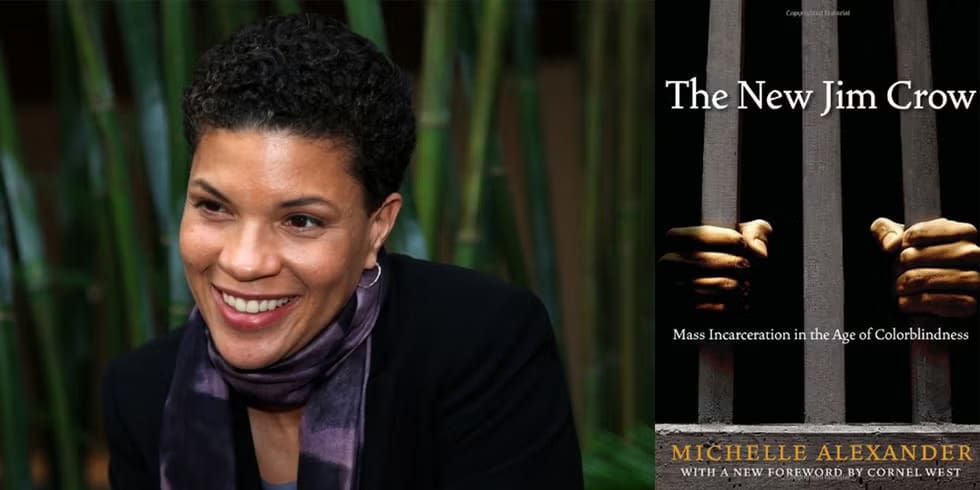Contemplating Injustice: A Reflection on ‘The New Jim Crow’ by Michelle Alexander

By: Laila Hopkins
To truly understand the exceptions to the rule of the thirteenth amendment it is important that we evaluate the resources that are available and the perspectives of those who have been able to effectively analyze the systems in place. A book that I first recommend, as it has been prevalent in many school-mandated reading lists, is “The New Jim Crow” by Michelle Alexander. Alexander’s incisive examination of mass incarceration in America goes beyond surface-level critiques; it delves deep into the murky waters of systemic racism and social inequality.
Let’s delve into the beginning. The initial chapters resonate deeply with historical context, tracing the evolution of racial oppression from slavery through Reconstruction and the Civil Rights Movement. It’s akin to unwinding a tapestry stained with the struggles endured by generations of African Americans. Alexander’s narrative voice is direct and uncompromising, refusing to gloss over the harsh realities confronting black communities.
Yet, it’s not just history; it’s the present. The way she connects the dots between Jim Crow laws and the War on Drugs is revelatory. It’s like deciphering a puzzle that exposes deliberate policies and decisions perpetuating racial discrimination under the guise of justice. The War on Drugs, initially touted as a battle against crime, unveils itself as a thinly veiled tool for targeting and incarcerating people of color.
Can this truly be happening in our society? Alexander compels us to confront uncomfortable truths about our criminal justice system. The stark statistics she presents — the disproportionate rates of incarceration, and the glaring disparities in sentencing — paint a grim picture of a justice system that appears far from impartial.
But what about personal responsibility? The internal debate wrestles with the notion of individual choices versus systemic oppression. While personal choices are significant, Alexander’s argument resonates deeply: how can we discuss personal responsibility when the system itself is stacked against certain groups from the outset? It’s a profound question that demands introspection and decisive action.
What steps can we take? Alexander doesn’t leave us despondent. Through her critique, she illuminates pathways to reform: advocating for policy changes, fostering grassroots movements, and promoting a collective awakening to the structural realities of racism. It’s a rallying cry, not only for black communities but for all who champion justice and equality.
Will there ever be change? The cynic within me murmurs, pointing to entrenched interests and ingrained prejudices seemingly woven into our societal fabric. Yet, Alexander’s work shines as a beacon of hope. It reminds us that change is indeed possible, but only if we confront uncomfortable truths and commit to dismantling oppressive systems.
So, what’s our next move? As I close the book, I’m left with a sense of urgency and resolve. The journey through *The New Jim Crow* has been challenging, enlightening, and profoundly necessary. It serves as a reminder that true understanding is the initial step toward meaningful action. Each of us holds a role in shaping a more equitable future, beginning with acknowledging the stark realities Michelle Alexander brings to the reader’s attention. Slavery is alive and well in this country and it disproportionately affects Black and Brown people in this country.
In conclusion, The New Jim Crow transcends mere literature; it’s a call to reckon with. It challenges us to look beyond superficial narratives, to interrogate assumptions, and to confront uncomfortable truths about race and the justice system in America. It’s a powerful clarion call and a stark reminder that the struggle for equality continues.

